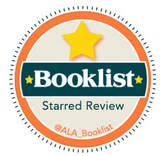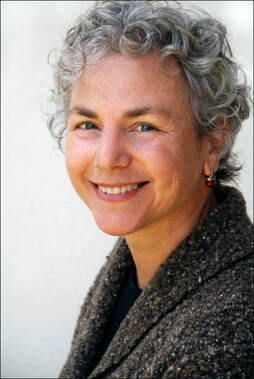 What is the name of the piece that you have in Grabbed? "Because What We Do Does Not Die" What was the inspiration for your piece? What compelled you to write it? Actually, this anthology inspired me to write this poem. I'd written about this experience previously in prose, in the introduction to the anthology I co-edited, I Never Told Anyone: Women Writing About Child Sexual Abuse and also in the book I co-wrote, The Courage to Heal: A Guidebook for Women Survivors of Child Sexual Abuse. I didn't think I had more to say, but thinking about this anthology, I realized that I could explore in poetry the experience of my mother's protection and how that continues to stay with me, even after her death. Can you speak to the evolution of writing your piece? How long did it take you to write this piece, including revision? This is always an interesting question to try to answer because there isn't only one way to approach the time. If we count from when I wrote about the first experience in prose, which is when I began to find words to shape it, it took me about forty years. If you count from when I tried to write this as a poem it took about nine or ten months. The first draft didn't take long, but it took time to cut away the excess and find the essence of the poem. As a writer, do you feel obliged to share difficult experiences? Yes, absolutely! I believe it's both my privilege and my responsibility to use my skills and my sensibility to make whatever contribution I'm capable of. What do you feel the impact of the #MeToo movement has been on your work, if any? Because I was writing about sexual abuse, working to bring this subject into general awareness and to provide support for survivors since 1974, I am gratified to see how the #MeToo movement is another important step in that journey. What would you say to another writer who has been uncomfortable or silent about their experience? How can they begin to share their experiences? I think it's very important, first, for each of us to respect our own vulnerabilities and boundaries. I don't believe that anyone should feel that they must fulfill anyone else's expectations that they share their experiences publicly. This is a very personal decision and not to be taken lightly. That said, it is freeing--and an important part of the healing process--to break the silence. Writing is a powerful way to do that. But that doesn't mean you have to publish what you write. The first step could be just to share with a trusted person. And then, to assess what's right for you each step of the way. As Zora Neale Hurston said, “There is no agony like bearing an untold story inside you.” How can a publication such as Grabbed help to empower or heal readers? Grabbed is part of a powerful lineage of survivors telling their stories. Reading Grabbed will tell you the three most essential messages: that you're not alone, you're not to blame, and that healing is possible. Ellen Bass’s most recent book, Indigo, was published by Copper Canyon Press (2020). Among her previous books are Like a Beggar (2014), The Human Line (2007), and Mules of Love (2002). She co-edited the first major anthology of women’s poetry, No More Masks! (1973). Among her honors are three Pushcart Prizes, The Lambda Literary Award, The Pablo Neruda Prize, Larry Levis Prize, New Letters Prize, and Fellowships from the NEA and the California Arts Council. Her poetry appears frequently in The New Yorker, The American Poetry Review, and many other journals. Bass is also coauthor of the groundbreaking The Courage to Heal: A Guide for Women Survivors of Child Sexual Abuse (1988, 2008), I Never Told Anyone: Writing By Women Survivors of Child Sexual Abuse (HarperCollins, 1983), Beginning to Heal: A First Book for Men and Women Who Were Sexually Abused as Children (2003) and Free Your Mind: The Book for Gay, Lesbian and Bisexual Youth and Their Allies (1996). A Chancellor of the Academy of American Poets, Bass founded poetry workshops at Salinas Valley State Prison and at the Santa Cruz County jails, and she teaches in the low-residency MFA program in writing at Pacific University. www.ellenbass.com
0 Comments
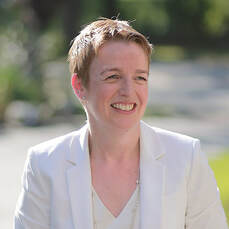 What is the name of the piece that you have in Grabbed? My piece is called Tuesdays. What was the inspiration for your piece? What compelled you to write it? The piece is about my experience of group therapy in a group for survivors of sexual abuse run by an organization called One in Four, based in Ireland. The essay details the arc of my healing journey, starting with my first night arriving there and finishing with how I felt when I left. What compelled you to submit your work for this anthology? Was it a difficult decision? When Nikki Moustaki - one of the Grabbed editors - approached me to be part of the anthology, I said “no” straight away. But that night I came home and almost against my will I started to write Tuesdays. It was one of those pieces that comes out nearly fully formed - I actually wrote most of it on my phone! In many ways, I think the piece had been inside me, waiting to be written. Until Nikki asked, I didn’t know I was ready. Once it was written, I knew I had to submit it, though that doesn’t mean it was an easy decision. On the contrary - initially I wanted to publish it as a fictionalized piece although I’m so glad that I didn’t now. For me, publishing this meant disclosing my childhood sexual abuse trauma to family members who never knew. It was a secret that I’d carried mostly alone for nearly four decades. The hardest part and the most important part was breaking that silence. Why did you choose this particular form or genre for this piece? Apart from the occasional dabble into poetry I am a prose writer, so it was always going to be in that form. While I mostly write fiction, over the last number of years I’ve enjoyed mining my own experience through personal essay. Can you speak to the evolution of writing your piece? How long did it take you to write this piece, including revision? Very infrequently, a piece pours out of me almost fully formed. Usually with my novels, it is one key scene that I write early on, before I even fully understand what the story is or how it will develop around this scene. This is what happened with Tuesdays. I am a creature of habit and I like routine - especially when it comes to writing. But Tuesdays just bubbled up late one Sunday night while I was putting away laundry. I typed it into my phone - the words were coming so fast I didn’t have time to turn on my computer. I stayed up past 1am - also not like me! - just to get it down and capture it all. Of course, I revised that original piece a couple of times but the edits were minimal - the biggest revision I made was change the point of view. I had originally written Tuesdays in the first-person but it felt too close to me, almost suffocatingly close. Nikki Moustaki suggested trying second-person and it was the perfect suggestion. Second-person made it feel more immediate and yet gave the breathing room I felt the piece needed. As a writer, do you feel obliged to share difficult experiences? When I was a kid growing up in Ireland in the 1980s, there was a lot that wasn’t talked about. Books and music became my way to connect with people beyond my own limited experience - they were a way to understand life and human emotions. I would read a line in a book and think: “That’s it! I’ve felt that way, I know that feeling!” and it would be so exciting to me to make that connection with someone I didn’t know and had never met. As a writer, I believe that’s the most important thing I have to offer readers - a point of connection - that by sharing my own experiences I can help someone understand their own a little better and maybe feel less alone. Something I tell my students - whether they are writing fiction or non-fiction - is that the moment they start to feel uncomfortable or scared, that moment when they start to worry about what other people will think of what they’ve written, that’s the moment you know that you are writing something really good, something true. What do you feel the impact of the #MeToo movement has been on your work, if any? It’s almost impossible not to have been impacted by the #MeToo movement. Having so many voices break their silence raises a bar for me in my own work, my own life. Beyond writing about sexual abuse or trauma, it poses wider questions: How authentic am I willing to be in my own work? How willing am I to own my own experience, even when owning that experience is hard or scary - maybe especially then? What would you say to another writer who has been uncomfortable or silent about their experience? How can they begin to share their experiences? I would say start small. You don’t need to start to write about your biggest secret right away, you can write about your experience of something where there is less at stake for you. Getting comfortable with that will help you find your own voice and demonstrate to you the benefit of sharing your experiences through your writing - you’ll notice what you get from it and how it feels afterwards. The other thing that helps me when I write that first draft is to remind myself that no-one ever has to see it. In my mind, the act of writing and the act of sharing your work - through publication or other means - and two totally separate things. When I first wrote Tuesdays, I wrote it for me - I didn’t think of it being published, I had already said “no” to being included in Grabbed. For me, I need to write the piece first, to get it out and then decide how and with who and when I want to share it. How can a publication such as Grabbed help to empower or heal readers? Shame breeds in silence. Shame has the power to rob me of my voice, my experience and even my sense of self. A publication like Grabbed, on so many levels is saying: “No, you can’t take my power away, whatever you do to me, I still have my voice and here it is.” The power of our collective voices shines light into the dark. Our voices - my voice - has the power to dispel shame. My own journey to healing began with reading the book “The Courage to Heal” by Ellen Bass and Louise Thornton. I’ll never forget how terrified I was to even buy that book. I bought it thousands of miles from home, in a Barnes and Noble in Brooklyn and I was shaking, bringing it to the register. That book was the cornerstone of my healing. Through the voices of the courageous women sharing their stories, I began to understand what had happened to me and feel more hopeful, less alone. Today, Grabbed is on the shelves of that same Barnes and Noble bookstore and Ellen Bass is a contributor who I am honored to be published alongside. None of that, would have been possible for me without the first step of buying a book that changed my life. 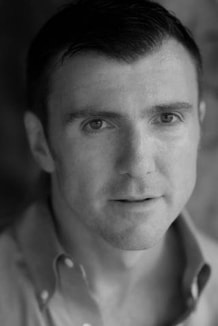 What is the name of the piece that you have in Grabbed? Body Politic What was the inspiration for your piece? What compelled you to write it? Our problems with the POTUS unfold into personal recall of aggressive sexual behaviors I experienced from women, mostly well-meaning (I think); personal struggle with gayness, confusion, disgust with the demands of the body & the politic one bears in being possessed of body, depressed by desire’s imperatives. . .womens’ problems with other women & the crosses of cultural inheritance, perversion of collective conscience. . . . Can you speak to the evolution of writing your piece? How long did it take you to write this piece, including revision? Writing is revisioning, & this piece evolved over the course of several years. As a writer, do you feel obliged to share difficult experiences? Why? There’s a healing that may come of it. . .regardless, the imperative seems to be steeped in struggle, augmented by obsession & the art-making compulsion that is mostly joyous as well as redemptive & often arduous. What do you feel the impact of the #MeToo movement has been on your work, if any? The stories aren’t to be contained in shame. . . let us please evolve & learn to live & love & care for ourselves & others. What would you say to another writer who has been uncomfortable or silent about their experience? How can they begin to share their experiences? At a certain point, seems to me the writer recognizes the importance of uncomfortable, of the power available to her in heeding the call of what stirs in us. . .what wants to speak will be the wounds, propelled by wonder, born in yearning, for starters. . . . How can a publication such as Grabbed help to empower or heal readers? Shared experience, transmuted through art, is a kind of apotheosis. Bosch Jones is a poet, artist, & performer residing in South Florida. Poems have appeared in the Paris Review, La Presa, Cathexis Northwest Press, South Florida Poetry Journal, IMPACT magazine, Blood and Tears: a collection of poems for Mathew Shepard 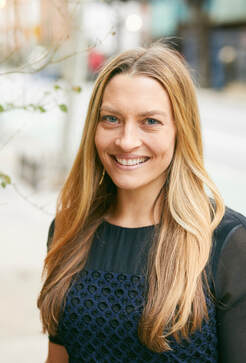 What is the name of the piece that you have in Grabbed? “The Opposite of Monsters” What was the inspiration for your piece? What compelled you to write it? My piece comes from an experience I had while backpacking in Africa. It’s an experience that I wanted to explore more—to put it in context for myself—and all I needed was a prompt, which this anthology gave me. What compelled you to submit your work for this anthology? Was it a difficult decision? I did question whether or not I wanted to submit this work for public consumption. When people hear that I backpacked in Africa, many of them ask an iteration of the following curiosity: Were you safe? Did anything happen to you? I hate that. I hate that because I had a world of experiences that were positive, where I saw the best in humanity, where I grew and learned. But often people want to hear about the bad, the problems—the stories that will affirm their understanding that Africa is a dangerous place to be. So the reluctance to be included in this anthology came from a fear that my story would either affirm negative stereotypes that people hold or that it would fall into some trope of “white girl goes to Africa.” Why did you choose this particular form or genre for this piece? Nonfiction prose is my comfort zone. Poetry tends to intimidate me. Can you speak to the evolution of writing your piece? How long did it take you to write this piece, including revision? I think I submitted a first draft of the piece to the series editors in August 2018. The draft was about 1,700 words, and I wrote it quickly, in perhaps five or six hours sitting in front of the computer. Of course I’d written much of it before I sat down to the computer. If possible, I like to have a prompt percolate for a while before I get to writing it. So as I’m going about my day—brushing my teeth, taking a shower, riding the subway, eating lunch—I’m thinking about it, writing in my head. And I’d given a lot of thought to this story anyhow, since it happened in 2006. The editors liked my initial draft but asked me to shorten it. So that took time, just as long if not longer than writing it. I asked a friend to read it and make suggestions for what I could cut. That was extremely helpful. From draft to publication, it took over two years. In writing, patience is a great virtue. As a writer, do you feel obliged to share difficult experiences? Why? I guess it depends on what I’ve concluded from a difficult experience. I don’t feel the need to write about a difficult experience if it was just plain difficult. If my conclusion was “that sucked big time,” or if catharsis is all I’m going for, a story is probably best to keep to myself, in my journal, or with a confidante. But if I’ve learned something from the experience and feel like all my work to understand what happened and grow from it would be helpful to someone else, then sharing it with others in writing seems like a good thing to do. Or if the difficult thing that happened to me is because of a person who’s still in a position to threaten others, that could be another strong reason to share your story. What would you say to another writer who has been uncomfortable or silent about their experience? How can they begin to share their experiences? I would say don’t put any pressure on yourself to share your experience in writing for public consumption. There’s no expiration date on your story. If there are details that you’re worried about forgetting, download your memories onto a computer file, put a date on your notes, and retrieve them if and when you decide you’d like to share. In my experience, it can also be brutal trying to place a story in a publication. Once, when I was looking to submit a personal essay, I read one editor’s submission guidelines. She wrote, “Here are some other done-to-death tropes that I never want to see again, with a few rare exceptions if you can really turn them upside down and make them new again.” Amongst others, she included: “How a cancer diagnosis changed everything, parenting a sick child, death of a parent, the story of your abortion.” To potentially hear from an editor that the worst thing you’ve ever experienced could be, in her eyes, a trope, is a risk of this craft. Though my topic wasn’t on her list, I didn’t submit my idea to that publication, because I decided my skin wasn’t thick enough yet. I needed more time for my wound to heal. I’d encourage writers to do the hard, painful, constructive work of processing your experience—get a little distance, get therapy, discover lessons—before putting yourself out there to readers you don’t know. But then again, as I’m writing this, I’m cringing. I’m asking myself: “Why did you give a flying f*** what that editor thought? Why did you let that influence whether or not you shared your story?” So maybe don’t take my advice here. But do be in a place where rejection of or criticism on your story won’t be unmanageable. How can a publication such as Grabbed help to empower or heal readers? You can know there are a lot of ways to endure, survive, and triumph over awful things that have happened to you. Laura Lee Huttenbach, an Atlanta native and a graduate of the University of Virginia, has written for numerous publications and is the author of two books. The Boy is Gone is the oral history of a Kenyan independence leader whom she met while backpacking in Africa. Running with Raven is the story of Robert “Raven” Kraft, a South Beach legend who has run eight miles every day for the past 45 years and inspired more than 3,000 followers to lace up their running shoes and join him. Laura Lee lives in New York City with her husband and young son. To learn more about her work, visit www.LLHuttenbach.com. 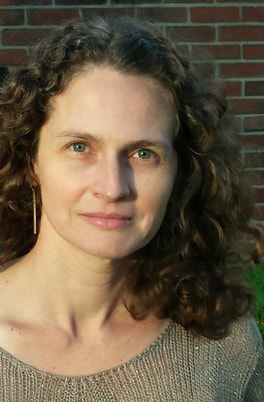 What is the name of the piece that you have in Grabbed? Grope What was the inspiration for your piece? What compelled you to write it? I have been a public school teacher for 24 years. Schools are still very stuck in the 19th century. They have an authoritarian-loving mode that's tied to the rigid, factory-like structure. Many young people are lost, unheard, and unprotected in schools. This poem is also about the way that young people engage with persecutors--often with empathy and identification. For children, there is always that question of why they are chosen; usually it's because there is something vulnerable or neglected in the child's circumstance. It's confusing because attention can feel good to a child who already feels invisible. As a writer, do you feel obliged to share difficult experiences? Difficult (especially unspoken) experiences often become poems; poetry as an art form allows for the language that exists outside of everyday experience. Shame often lacks a language. Of course, poetry is part fiction; our narrators are part of us, but no one should assume they are us. And some experiences always seem to elude being written about directly. Reading has healed and empowered me since I was small because of its intimate nature; it offers access to the private imagination of someone else that day-to-day life does not provide. To create an entire anthology on a taboo subject is very important. Nothing like it existed when I was a young woman. When you can't read about experiences, you believe yourself to be alien, isolated by your very existence. Jessica Cuello is the author of Hunt (The Word Works, 2017) and Pricking (Tiger Bark Press, 2016). She has been awarded The 2017 CNY Book Award, The 2016 Washington Prize, The New Letters Poetry Prize, a Saltonstall Fellowship, and most recently, The New Ohio Review Poetry Prize. Her poems can be found in American Literary Review, Plume, On the Seawall, Missouri Review, Tinderbox, and Los Angeles Review. She is a poetry editor at Tahoma Literary Review. 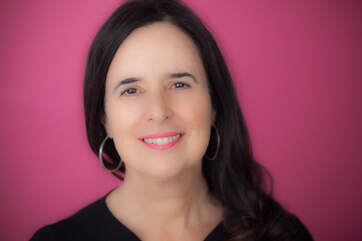 What is the name of the piece that you have in Grabbed? The Man with the Violin Case What was the inspiration for your piece? What compelled you to write it? I’ve never forgotten the real-life experience that inspired my story. It has haunted me to the present day. Sometimes you carry experiences like that your whole life, not knowing if they’re worth telling, let alone writing them down. Somehow it felt right to share the story now in the hope that it would be meaningful in the context of our anthology. What compelled you to submit your work for this anthology? Was it a difficult decision? I believe in the importance of this anthology and knew that all of you amazing editors (Richard, Cary, Nikki, and Elisa) would create a powerful and necessary book. I admit that I was initially concerned that my story wouldn’t fit the mold of a sexual harassment story, since in the end “nothing” really happened, meaning I wasn’t physically touched or molested or “grabbed.” But as I wrote, I realized that the story is relevant in exploring how harassment can take on numerous forms and that creating fear and terror in a woman’s mind is another way to cause harm and make her feel vulnerable and unsafe. Why did you choose this particular form or genre for this piece? I decided to write the piece as a mini-memoir essay. I’ve always loved the genre of the personal essay and in this one I blended in elements of an extended panic attack, so the temporality of the story takes place in one very intense moment but also moves back and forth in time to a childhood in Cuba and the present tense of a young woman coming uneasily of age in New York. Can you speak to the evolution of writing your piece? How long did it take you to write this piece, including revision? I think it took about two to three months, between the very first version and then the revisions. I was fortunate to have Nikki as my editor. She asked me sharp questions that pushed me to go deeper into the emotions I felt at the time and the emotions that the memory of the encounter still provokes in me. As a writer, do you feel obliged to share difficult experiences? Why? I can’t say I always share difficult experiences on the page, but I often do. I think as writers we are like archaeologists, excavating our emotional history, digging up the many layers of the past and the present, and seeing how all of that comes together in ways we can’t always articulate until we sit down to write our stories. We find broken pieces, fragments, of our lives that we’ve carried around and then when we write we try to recreate the context in which those pieces, fragments, were once whole so we can understand better what wounded us and what we need to do to heal. What do you feel the impact of the #MeToo movement has been on your work, if any? I have been a feminist ethnographer for many years and involved in bringing attention to the work of women anthropologists who have been erased from the canon. Throughout my writing life, I’ve turned to women writers, especially Latina writers, for models of how to be a strong woman in a man’s world. The #MeToo movement has emboldened all of us who have been on these quests to continue, to speak up more, and not be afraid. What would you say to another writer who has been uncomfortable or silent about their experience? How can they begin to share their experiences? The first step is to share their experience at the kitchen table with a trusted friend, or over the phone or Facetime, if that’s not possible. I think many stories begin as a confidence shared with someone who will listen and keep your secret, if that’s what you want. Having told the story and given it breath, you can then work to make it come alive on the page. How can a publication such as Grabbed help to empower or heal readers? If a reader can see themselves reflected in even one story in Grabbed, that is an important way to begin the healing process. And if there are several stories readers can identify with, then there are many ways to be empowered and to heal holistically. Ruth Behar was born in Havana, grew up in New York, and has also lived in Spain and Mexico and returned to Cuba often. She is an acclaimed writer of poetry, memoir, children’s fiction, and travel books that explore her return journeys to Cuba and her search for home. She is the author of An Island Called Home: Returning to Jewish Cuba and Traveling Heavy: A Memoir in Between Journeys. Her poems are collected in a bilingual edition, Everything I Kept/Todo lo que guardé, and her documentary, Adio Kerida: A Cuban Sephardic Journey,is distributed through Women Make Movies. She won the Pura Belpré Author Award for her debut middle-grade novel, Lucky Broken Girl, which explores her experience growing up Cuban-American while confined to a body cast. Her new middle-grade novel, Letters from Cuba, a work of historical fiction, is inspired by her maternal grandmother’s escape from Poland to Cuba on the eve of WWII. Ruth was the first Latina to win a MacArthur “Genius” Grant. Other honors include a John Simon Guggenheim Fellowship and being named a “Great Immigrant” by the Carnegie Corporation. She teaches anthropology at the University of Michigan and lives in Ann Arbor. 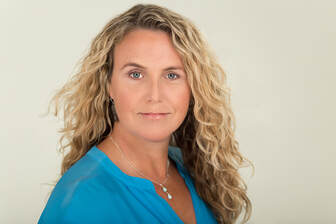 What is the name of the piece that you have in Grabbed? "Flashbulb Memory" What was the inspiration for your piece? What compelled you to write it? I wrote it when I heard about the term "Flashbulb Memory" as the way we remember trauma. I was young when I was assaulted and yet, I remembered everything single detail as if it had just happened yesterday. It was nice to finally have a term to understand why. What compelled you to submit your work for this anthology? Was it a difficult decision? I wanted to submit to this anthology the second I heard about it. What struck me the day of the Cavanaugh hearings was how universal our experiences are as women. And, how women of my generation spoke about what happened to us to each other, but we didn't report what had happened to us because it was so commonplace. I cried all the way to work that day listening to Dr. Ford bravely tell her story because I thought FINALLY someone is telling their story and it will be listened to. But, when her testimony was dismissed and Cavanaugh was appointed to the Supreme Court I felt betrayed. I felt like I will never be silent again. Why did you choose this particular form or genre for this piece? I chose to write it as a question and answer to mimic the police questioning I endured just days after the attack. Can you speak to the evolution of writing your piece? How long did it take you to write this piece, including revision? I have written many versions of this same poem. It wasn't until I learned about the term flashbulb memory that I felt like I understood how I wanted to approach it. As a writer, do you feel obliged to share difficult experiences? Yes. I often write my way through the most difficult parts of my life. In this case, I'm writing about my trauma because I don't want to be silent anymore. What do you feel the impact of the #MeToo movement has been on your work if any? It has had a huge impact on my work. I write about women whose stories have been suppressed by androcentric history. The #MeToo movement made me feel even more like the work I am doing is really important. What would you say to another writer who has been uncomfortable or silent about their experience? How can they begin to share their experiences? I think we tell our stories when we are able to tell them. I would encourage everyone to tell their truth if only because if we all tell the truth about what has been happening to us then things will begin to change. How can a publication such as Grabbed help to empower or heal readers? Readers will feel empowered to tell their own stories, to believe their stories will be listened to. Iris Jamahl Dunkle was the 2017-2018 Poet Laureate of Sonoma County, CA. Her newest poetry collection West : Fire : Archive will be published by Mountain/ West Poetry Series in 2021. Her other poetry collections include interrupted Geographies (Trio House Press, 2017) Gold Passage (Trio House Press, 2013) and There's a Ghost in this Machine of Air(Word Tech, 2015). Her biography Charmian Kittredge London: Trailblazer, Author, Adventurer is now available from the University of Oklahoma Press. Dunkle teaches at Napa Valley College and is the Poetry Director of the Napa Valley Writers' Conference. Charmian Kittredge London Trailblazer, Author, Adventurer is now available for pre-order. 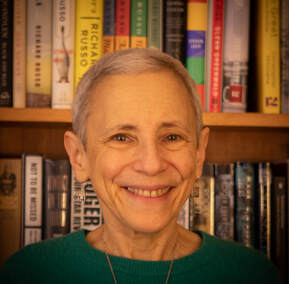 What is the name of the piece that you have in Grabbed? “Lesson” What was the inspiration for your piece? What compelled you to write it? I’m mostly a narrative poet, and this incident has a beginning, middle, and end, which I guess is why I wrote it–because of the nice narrative shape. In it, I fictionalize a real event that stayed with me because two shames are wrapped up in it: the shame of a thirteen-year-old who didn’t know how to ride a bike and the shame of the groping itself. Why did you choose this particular form or genre for this piece? I write poems for adults and novels for kids. It isn’t just that this incident isn’t for the age group my books are written for, it’s mostly that I go to poetry to explore my feelings, my understanding of my past and the present, and my relationship to the world. This poem goes to a lot of that, and it had to be a poem. As a writer, do you feel obliged to share difficult experiences? Why? I regard poetry as a place of freedom, as the perfect place for me to be imperfect. It’s hard to admit to being a victim. My real groper was a stranger. I was in Central Park in New York City with a friend from school. At the time, she didn’t realize what had happened and I didn’t tell her. I was too embarrassed. We’re still friends, and I told her only recently. What would you say to another writer who has been uncomfortable or silent about their experience? How can they begin to share their experiences? I’m not hopeful that sexism and the exploitation of women will end. But no headway will be made if writers remain silent. Silence is isolating. In silence, we believe that what happened to us happened to no one else and was our fault. A friend told me after the accusations against Harvey Weinstein that she was having lunch with three other women when the topic came up. In talking, they discovered that all four of them had been raped. How can a publication such as Grabbed help to empower or heal readers? It is exhilarating to find one’s own experience coming from someone else’s pen. When it happens to me I feel understood, sometimes for the first time.  What is the name of the piece that you have in Grabbed? Daughter, They’ll Use Even Your Own Gaze to Wound You What was the inspiration for your piece? What compelled you to write it? I was in a conversation with a group of women friends, talking about times we’d be accosted or assaulted by men. I brought up the subject of exhibitionism, because there are three times in my life when a man has exposed his genitals to me. I’ve always been curious about other women’s experiences with how frequently this occurs. The majority of the women (there were seven of us) had been the victim of exhibitionism. After this conversation, I kept replaying the three incidents, all very different both in their setting and in my reactions. The first time, I was a high school girl, in a library, and I felt exceedingly upset and violated. I didn’t tell anyone and didn’t know how to process what I’d been forced to see. The second time, I was with my friends, and we’d been drinking, and when the man exposed himself to us, we laughed, and the whole incident felt much less scary and traumatizing. And the third time, I was in grad school, and in a park, training for a half marathon. And when the man exposed himself to me, I just kept running at my same pace, determined to finish my training run and not give him the pleasure of seeing me look shocked or upset. In the weeks after the conversation, I kept thinking about two things. The first is, I realized I still had some processing to do. I think I was conflicted about my feelings of violation because I kept telling myself “No one touched you, you’re fine, it’s not a big deal” but at the same time I knew that violence had occurred and that I had been forced to experience something I didn’t want. The second thing I was thinking about is that the pattern of my reactions also conveys how sexual violence of any sort is an attempt to beat you down and dehumanize you, and it had worked in the respect that the third time my reaction was so much smaller than the first time, as if it’s reasonable to live in a world where this happens. Why did you choose this particular form or genre for this piece? I was thinking about the tidy box of the Shakespearean sonnet, a form I love—how there are three examples of a problem or situation, and a tidy couplet that resolves the problem or reverses the statement. So my piece became a secret deconstructed sonnet—three examples that don’t get reversed or resolved. The couplet show that the tidy box is broken, as the lesson of “what women know” gets reinforced. This couplet even rhymes. I don’t expect the reader to know what I’m doing with this deconstructed sonnet, but it was useful for me. Can you speak to the evolution of writing your piece? How long did it take you to write this piece, including revision? After I wrote the piece, I knew there was one more layer to what I wanted to do with it, and I realized that layer comes from the world outside the poem, the fact that we not only inhabit a world where violence is done to women but we inherit this world from our mothers. And I thought about my pre-teen daughter, and how chances are good that she too will experience some type of the ugliness and brutality that many women experience and then are blamed for. And that these three acts of violence were done to me merely because I have eyes. So in a revision I thought of the title, “Daughter, They’ll Use Even Your Own Gaze to Wound You.” How can a publication such as Grabbed help to empower or heal readers? Because women are often blamed for being the victim, they metabolize shame. But reading of others’ experiences reminds us we’re not alone, and together we can support each other and redefine “what women know.” Beth Ann Fennelly, a 2020 Academy of American Poets Laureate Fellow, is the poet laureate of Mississippi and teaches in the MFA Program at the University of Mississippi. She’s won grants and awards from the N.E.A., the United States Artists, a Pushcart, and a Fulbright to Brazil. Fennelly has published three books of poetry and three of prose, most recently, Heating & Cooling: 52 Micro-Memoirs, which was a Goodreaders Favorite and an Atlanta Journal Constitution Best Book. She lives with her husband, Tom Franklin, and their three children In Oxford, MS. https://www.bethannfennelly.com/ 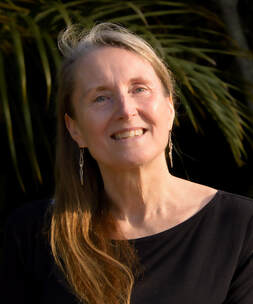 What is the name of the piece that you have in Grabbed? “When in Madagascar” Can you speak to the evolution of writing your piece? Since my experience was literally an attempted grab, I thought of it immediately. However, as the piece evolved, I realized that the moment was not worthy of mention amid the rape and abuse in a collection of this sort. The grab remained in my mind more as a curiosity than a moment of peril. Yet, Madagascar itself is indelibly stamped on my being, engulfed in emotion for those people that I could not help. My inability to make a speck of difference on such a scale is what I will keep forever, and sharing that became the importance of the piece. Though on the surface, my concerns might seem out of line with the purpose of this anthology, on a deeper level, relief of suffering is our shared hope. As a writer, do you feel obliged to share difficult experiences? Why? This is the first personal experience I have ever felt compelled to share. I thank you for the opportunity. Vicki Hendricks is the author of noir novels Miami Purity, Iguana Love, Voluntary Madness, Sky Blues, and Cruel Poetry, an Edgar Award Finalist in 2008. Her short stories are collected in Florida Gothic Stories. She currently lives in central Florida, the rural locale of her most recent novel Fur People. |
Grabbed BlogHave a blog idea for us? Submit it here. Archives
October 2020
Categories |
|
BUY GRABBED
|
If you or anyone you know is a victim of domestic violence, please call The National Domestic Violence Hotline: 1-800-799-7233 1-800-787-3224 (TTY) En Español: 1.800.799.7233 |
 RSS Feed
RSS Feed







